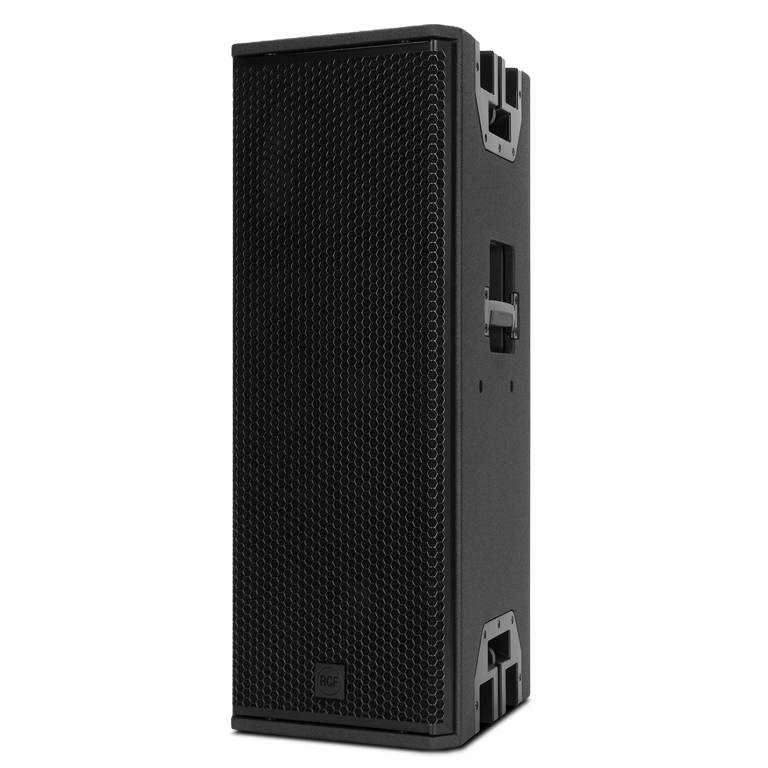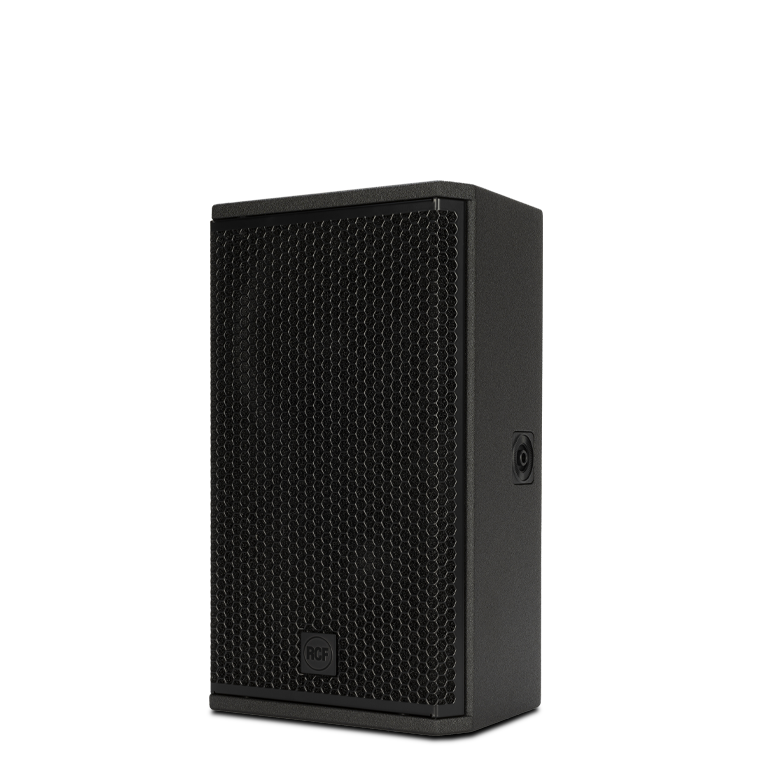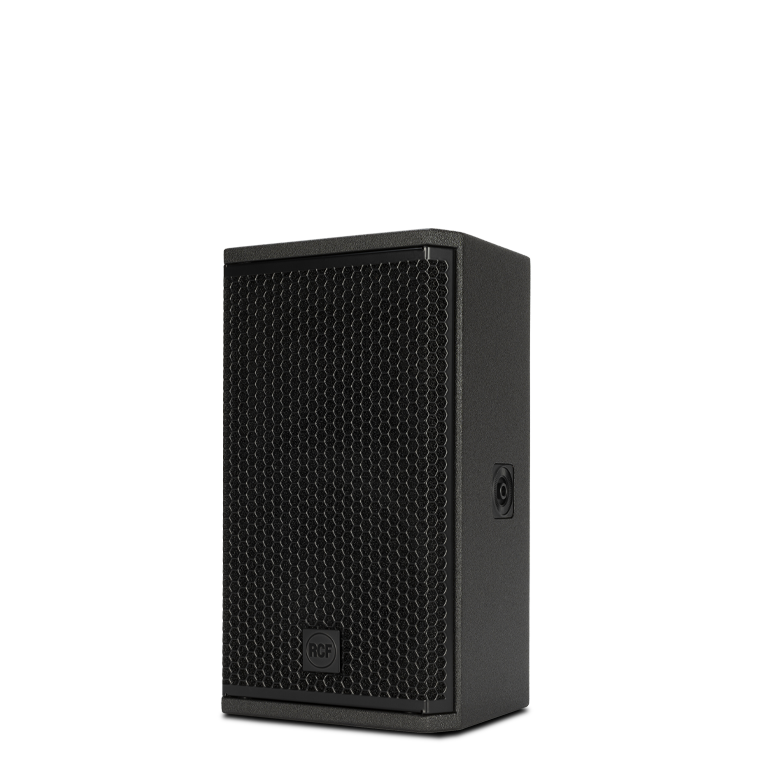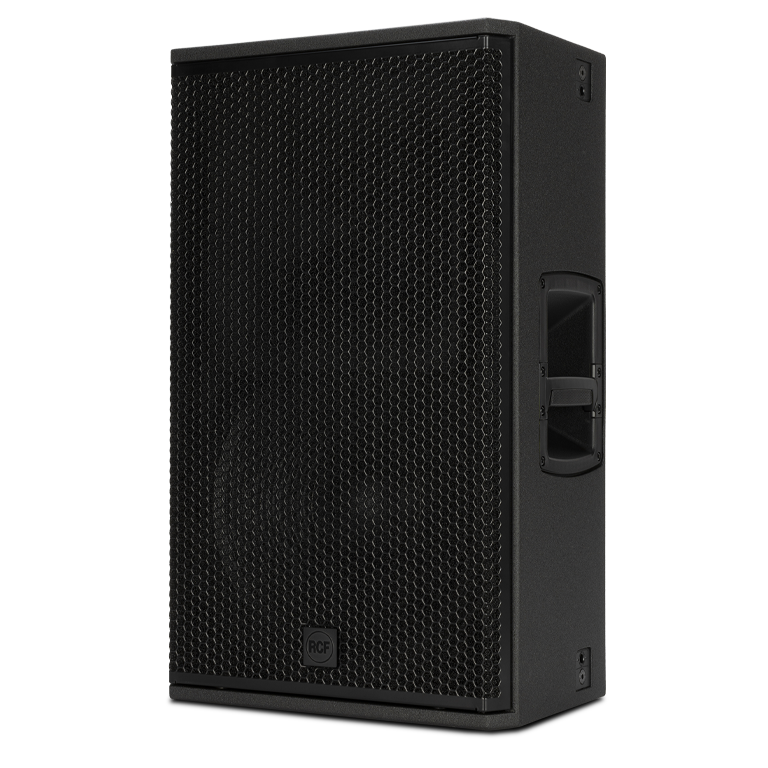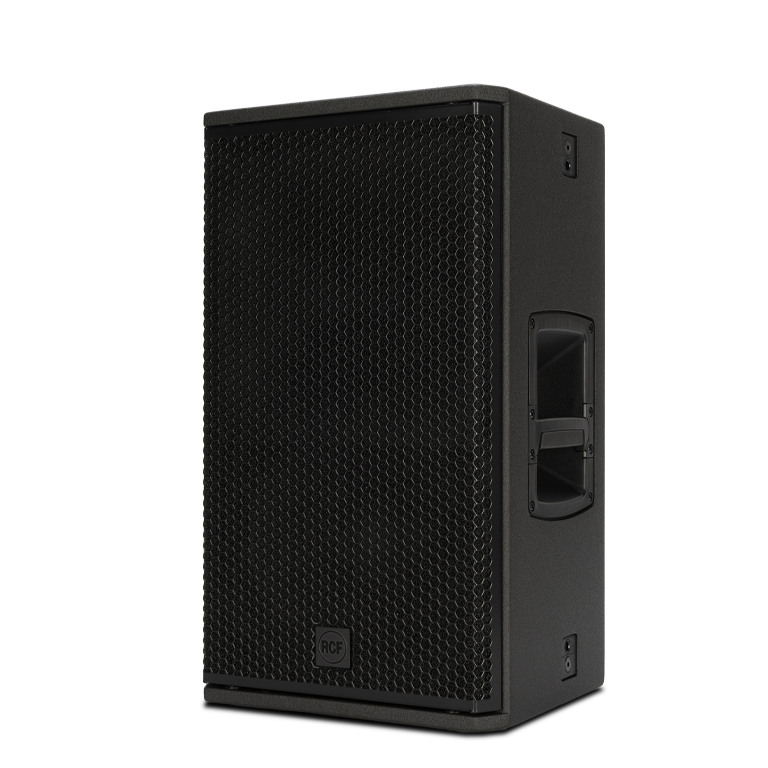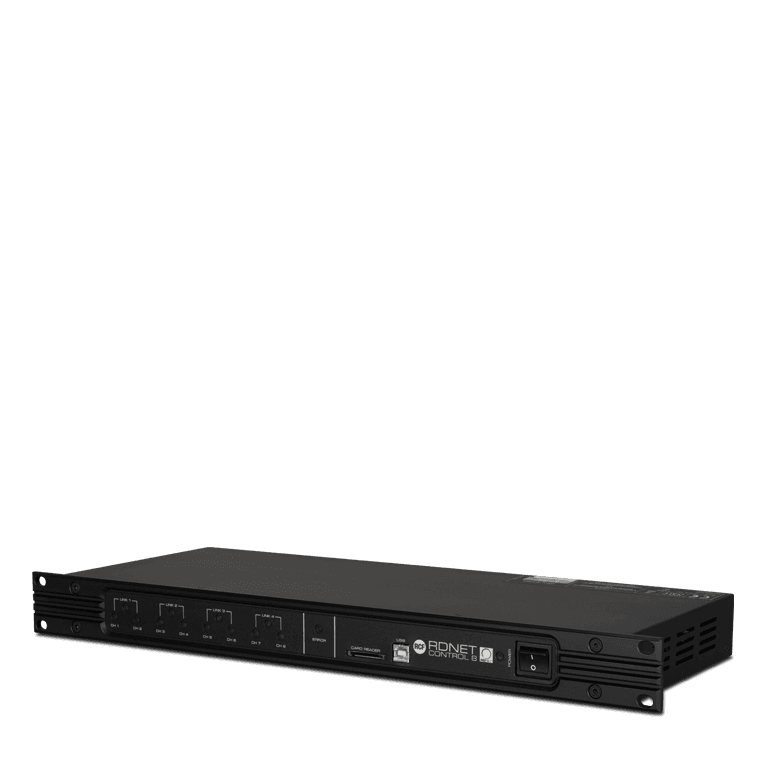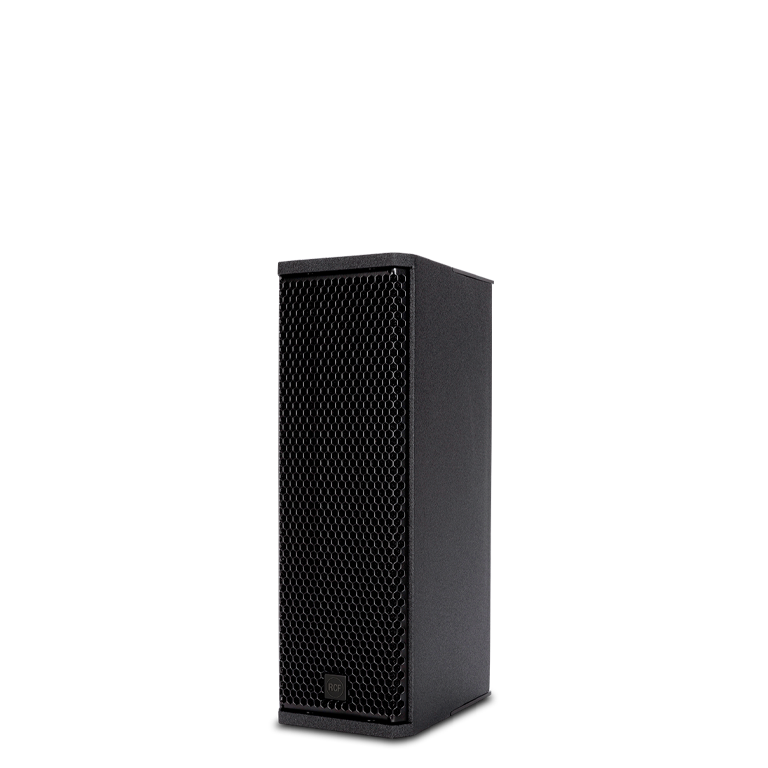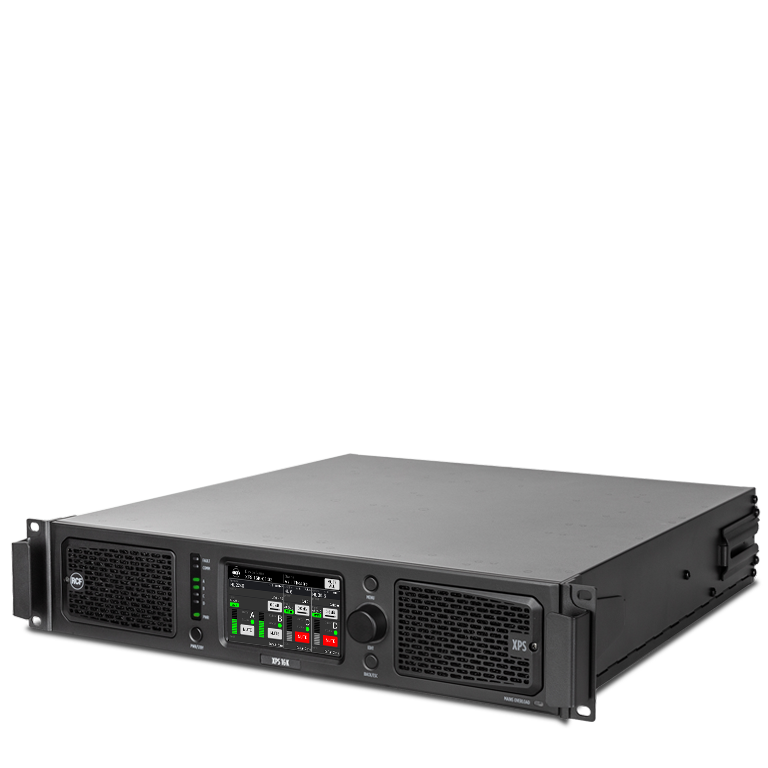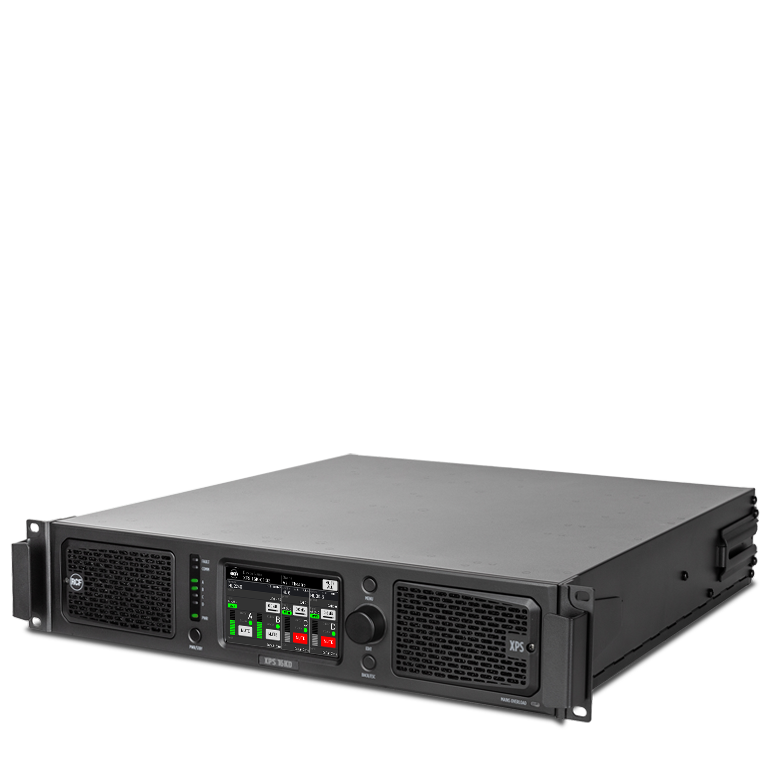RDNET RCF SOUND SYSTEMS MANAGEMENT AND CONTROL SOFTWARE
SOUND SYSTEM MANAGEMENT AND CONTROL SOFTWARE
RDNet is an advanced platform for integrated monitoring and control of sound systems - from small live and installed setups to massive arena systems. Based on a robust networked architecture, RDNet combines system control, line array design, and comprehensive audio measurements into a single powerful software package.
Engineers and technicians can intuitively manage every device on the network, from individual components to multiple groups. The platform provides full DSP control of compatible devices, with flexible configuration tools for perfectly tuning the system response at maximum speed. Users have real-time access and oversight of all key settings from a centralized interface.
The latest release features a streamlined workflow for seamlessly grouping self- and externally-powered systems. Device discovery is optimized with quicker drag-and-drop functionality, making it easy to manage hybrid systems. For example, a configuration using both GTX and TTL loudspeakers. The improved user interface includes an advanced EQ visualization with amplitude/phase response plot and real-time FFT analysis. The redesigned cloud infrastructure allows projects and measurements to be saved remotely and recalled from any location.
The Toolbox for System Design and Optimization
RDNet displays all audio devices connected to the network as objects on the main window. The real-time monitoring features a multitude of parameters such as fan speed, temperature, the inclination of a single speaker, VU Meters, peak levels, and more. The operator has complete control of time delay and equalization of every speaker, individually or grouped. With its built-in DSP, each device is an active part of the system, able to store presets, receive commands, and continuously send status information. Comprehensive monitoring is standard in RDNet: VU metering, clip indicator, limiter intervention, device inclination, communication issues—down to the status of a single component or a transducer—and much more.
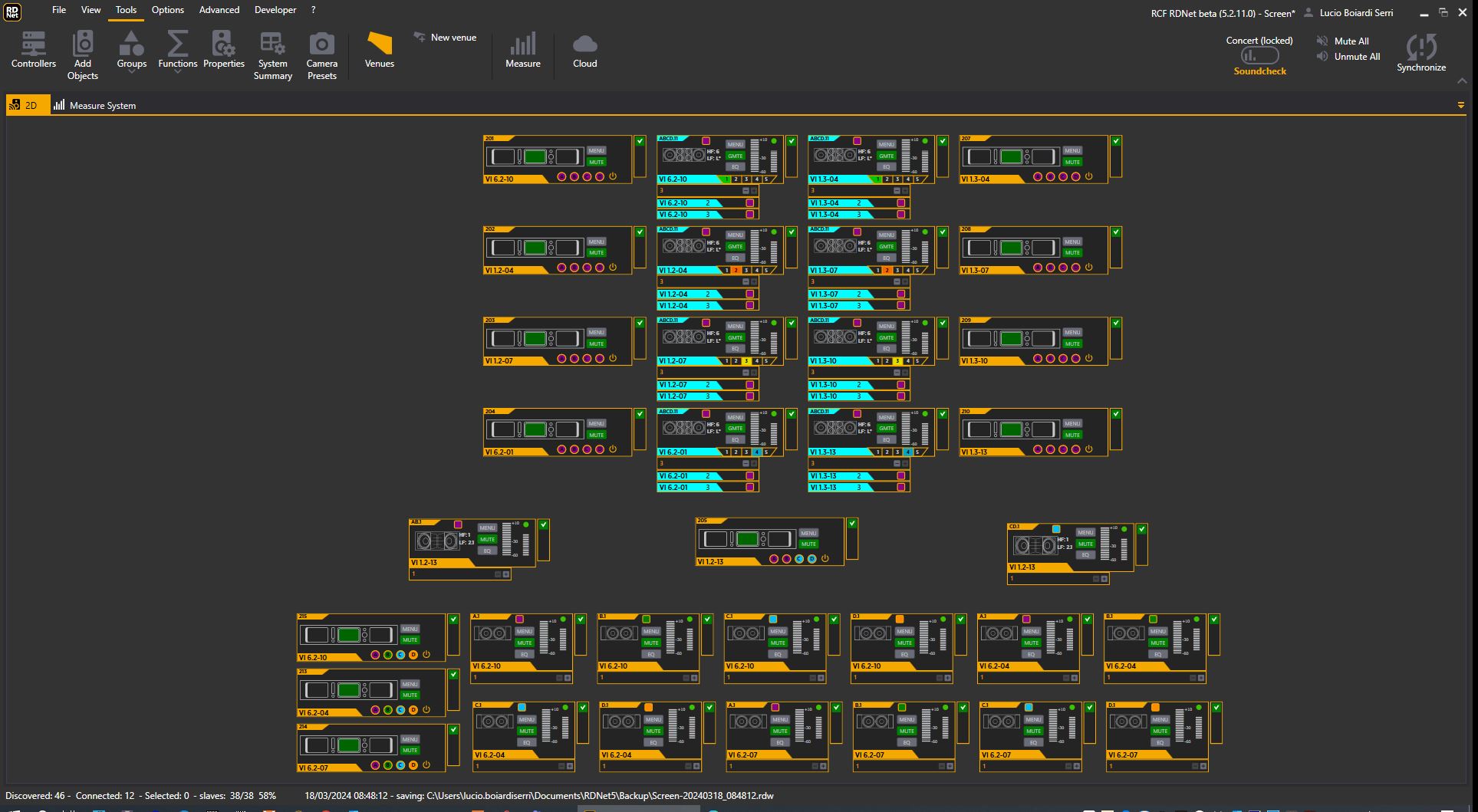
Take all Appropriate Measures
RDNet Measure is a powerful 4-input Dual-Channel FFT Audio Analyzer able to measure Magnitude, Phase, RTA, Coherence, and Impulse response. Functions included spans from a delay finder, a multiple signal generator, and an integrated SPL meter/logger with calibration tools. There's no need for external software to get the job done.
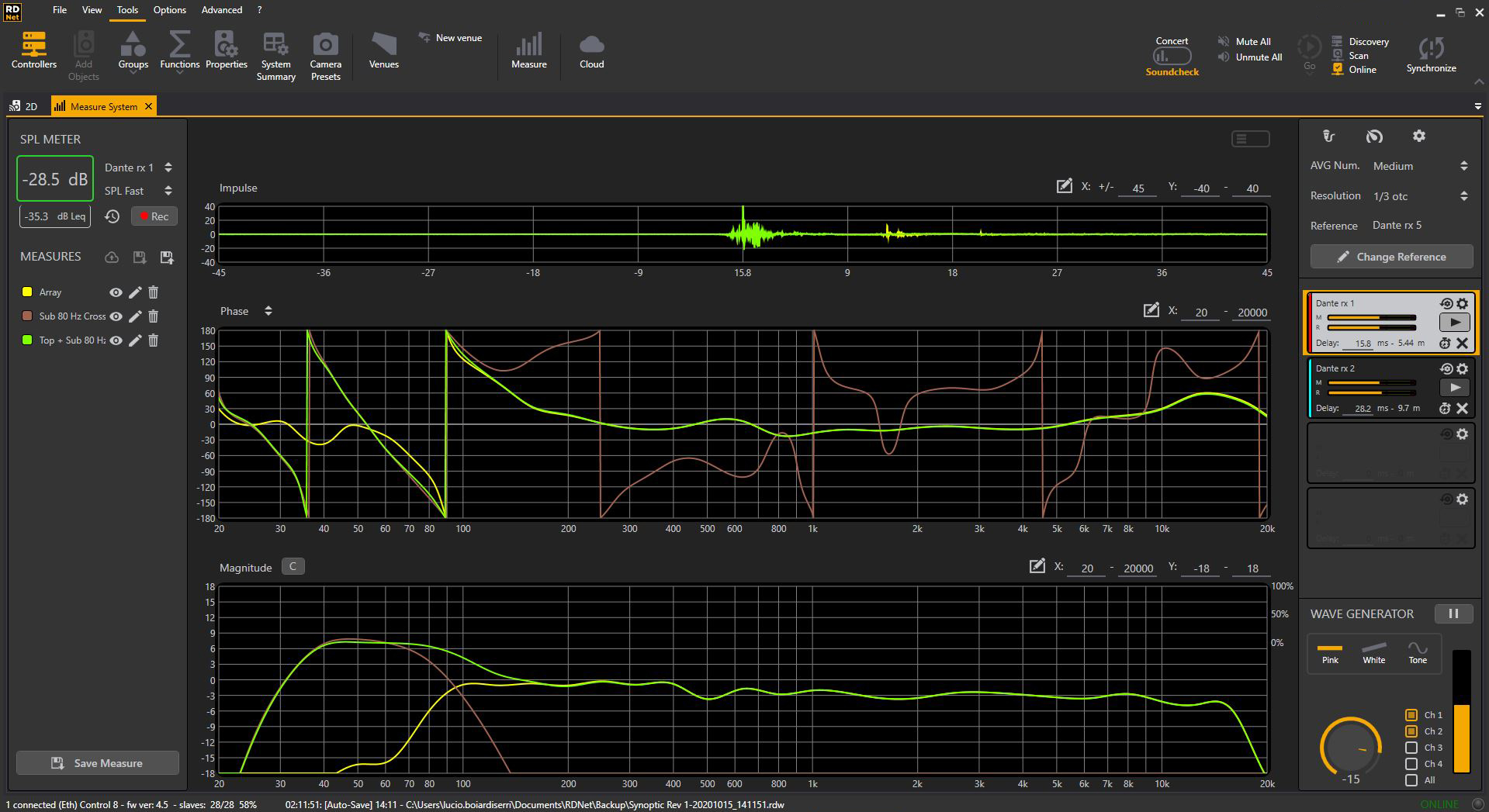
Get the Most out of your System
RDNet gives the ability to control devices in Groups for easy supervision. Arrays customizable Group properties are Zones, Air Compensation, Cluster Size, FiRPHASE Gain. When assigning Group Array objects in Zones: every Zone has its color for quick reference of set parameters. An incremental control shapes the Air Absorption Compensation, which can be very useful with changes in humidity or temperature (e.g., soundcheck on a sunny day, concert on a humid night). The line array’s low-mid shaping is automatically calculated on the Cluster size to obtain the perfect linear frequency response from the entire system.
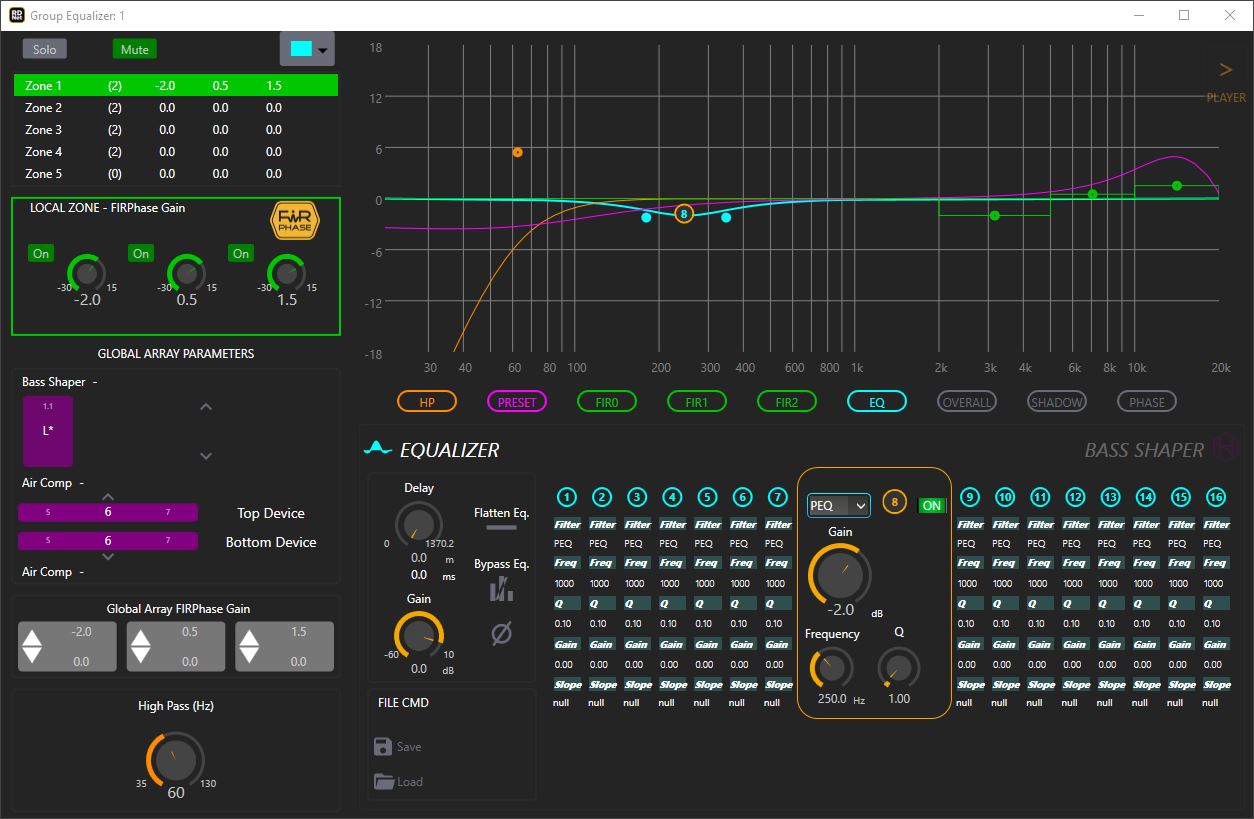
Advanced equalizers
RDNet takes direct control of the internal EQ and High-Pass filter on each cabinet. There are many EQ types to choose from: PEQ, Shelving (hi-low), Butterworth, Linkwitz-Riley and Bessel. The system engineer can manage EQs in two different modes for fast editing on touchscreens. Every Zone has three different fixed equalizers with gain control, while each Array Group has global control of the FiRPHASE Gain for parallel increment/decrement of the Zone FIRs.
Straight-Forward Array Curvature Calculation and Auto-Spline
Easy Shape Designer software within RDNet allows for two-dimensional array configuration calculations. It also suggests LF Corrections based on the cluster size and environmental conditions (temperature and humidity). The system sound projection data is computed with maximum sound pressure levels for the given design.
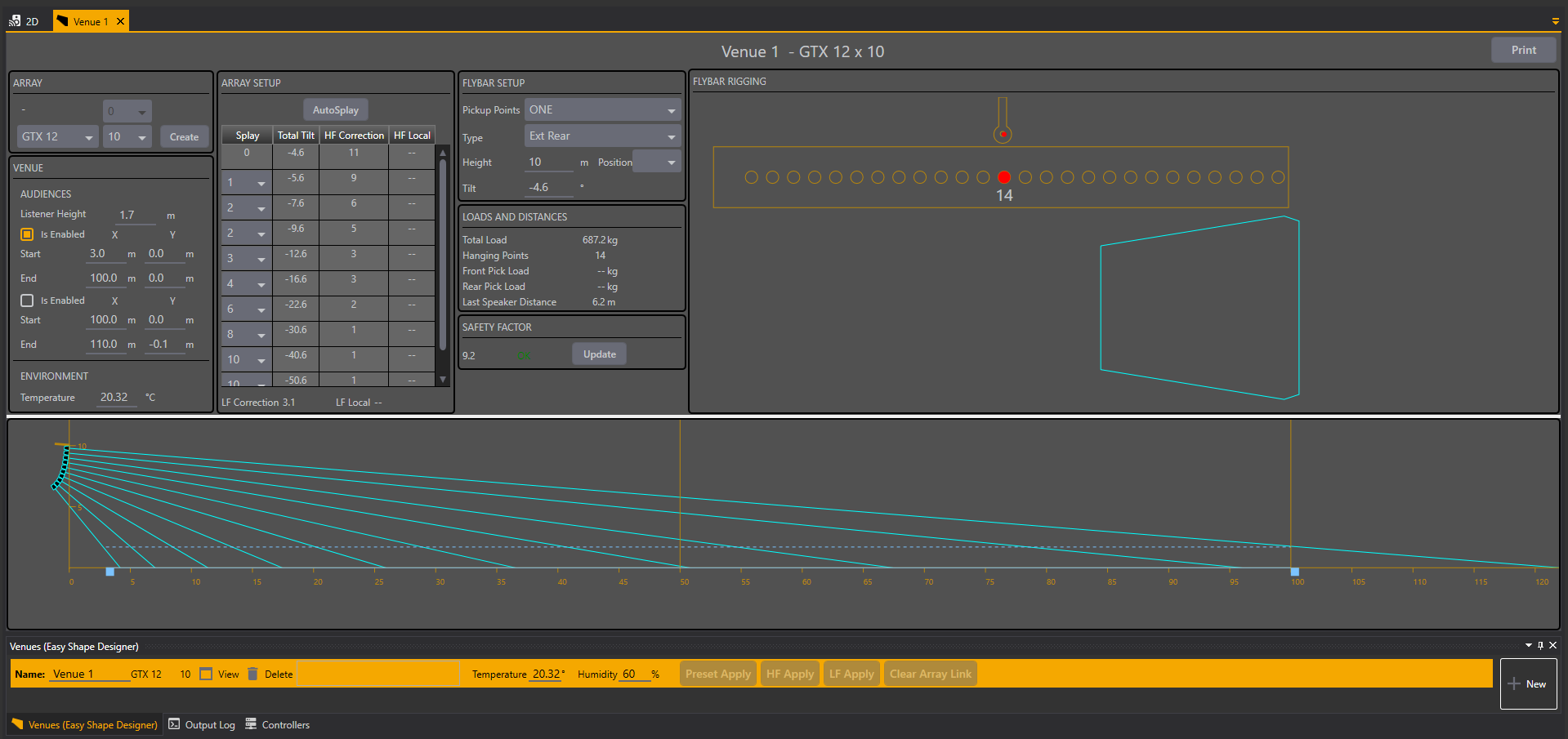
Set-Up Assistant
The System Designer chooses the best way to configure the system: Offline for the remote designer, or Online for selecting Soundcheck or Concert modes, for a safer system control during the show. Guided subwoofer configurations help the engineer to set up subwoofer Cardioids, Arcs, or EndFire configurations in one pass.
The advanced Bass Shaper function fine-tunes the desired timbre on low frequencies to better match the spectrum overlap with subwoofers. Within a few easy steps, Bass Shaper corrects low-end behavior while maintaining tonal balance across the entire system.
The advanced Bass Shaper function fine-tunes the desired timbre on low frequencies to better match the spectrum overlap with subwoofers. Within a few easy steps, Bass Shaper corrects low-end behavior while maintaining tonal balance across the entire system.
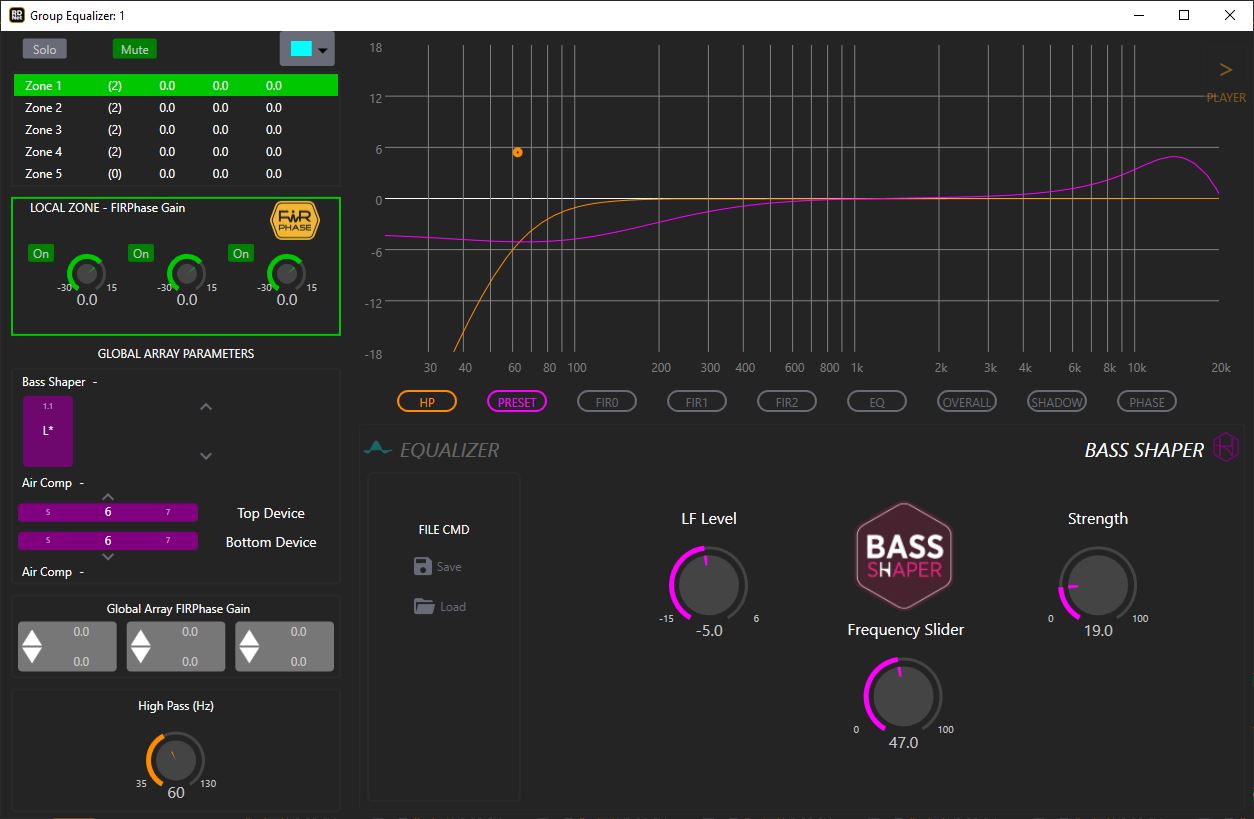
Automatic Alignment
The time-saving [Automatic LF Alignment] and [Fill/Delay Align] functions integrated with RDNet Measure allow for quickly aligning big systems directly from measurements.
The process is simple: after saving RDNet Impulse Response Measurements by group of speakers (Line Array, Subwoofer group, Cluster or Fill Speakers), the [Automatic LF Alignment] function automatically calculates and applies the best phase alignment of the sound system with the subwoofer group, while the [Fill/Delay Align] provides the best temporal alignment between two groups of speakers.
The process is simple: after saving RDNet Impulse Response Measurements by group of speakers (Line Array, Subwoofer group, Cluster or Fill Speakers), the [Automatic LF Alignment] function automatically calculates and applies the best phase alignment of the sound system with the subwoofer group, while the [Fill/Delay Align] provides the best temporal alignment between two groups of speakers.
RDNet Over Ethernet
RDNet-OE is the latest evolution of RDNet Networked Management for compatible products. Each XPS amplifier provides four Ethernet ports on the rear panel, making it easy to integrate the system into any existing Ethernet infrastructure. For example, XPS amplifiers in separate rooms within a facility can be managed via the facility's Ethernet network.
Networked speaker control
When the sound system is connected via Control2 or Control8 interfaces, the system engineer has complete control of time delay and equalization of all speakers, individually or grouped. With its built-in communication board and DSP, each device is an active part of the system, able to store presets, receive commands, and continuously send status information of single components or transducers. Comprehensive monitoring is standard in RDNet: VU metering, clip indicator, limiter intervention, device inclination, communication issues, and much more.
Easy Subwoofer Configuration
Guided subwoofer configurations help the engineer to set up subwoofer Cardioids, Arcs, or EndFire configurations in one pass, while the Bass Shaper fine-tunes the desired timbre on low frequencies. With three sliders and a few steps, it’s easy to correct low-end behavior while maintaining tonal balance across the entire system.
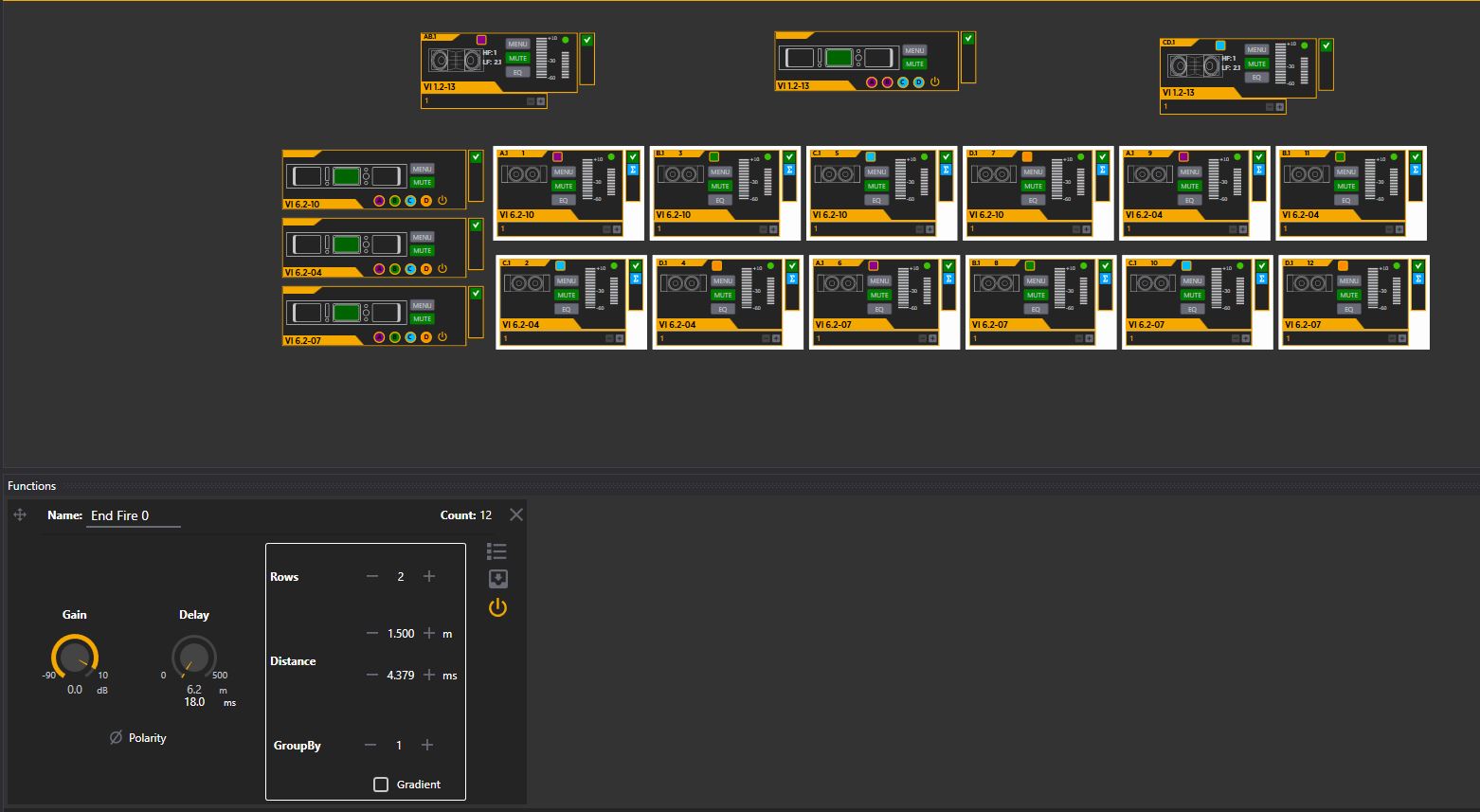
Travel Light on Clouds
You don't need your personal computer anymore. Just connect your computer to the web, sign-in to your account, and you are ready to go with a complete set of audio tools for your audio system. You can also save your projects and measurements and recall them anywhere you are.

Live sound and install audio applications
RDNet provides a comprehensive management system for both live and installed environments. This networked platform facilitates control and allows for the efficient monitoring, routing, and tuning of all RDNet-compatible devices.









